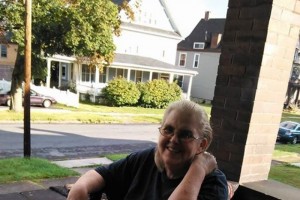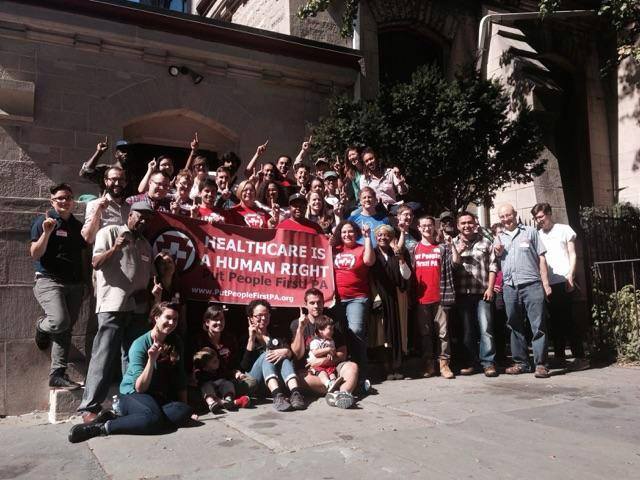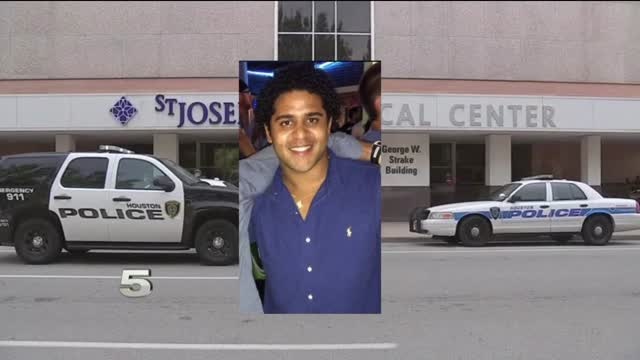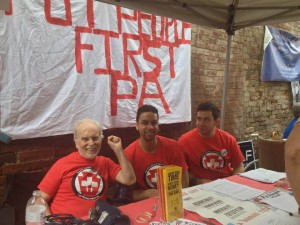by Nijmie Dzurinko
When Marie Funk, mother of PPF member Danelle Morrow, first spoke with a recruiter from Senior Life of Johnstown after moving there from Altoona in January 2015, she was told she “would never have another worry about her health.” That sounded pretty great to this 69-year old mother and grandmother.
However, Senior Life did not follow through on its promise, instead creating roadblocks to care for Marie that meant that by the time she was diagnosed with lung cancer, it was terminal. Now, Marie is crowdfunding for her cremation because the expenses might leave her daughter and grandchildren homeless. On her GoFundMe page, she writes,
“I have recently been diagnosed with stage 4 lung Cancer. Since March my doctors have ignored my complaints about my pains. Now I am terminal, and I need help to pay for my cremation, as my family is going to have trouble funding the $1500-2000 it costs to simply cremate a body. I am not asking for a funeral, just simple cremation. Please help me ease my comfort knowing my family will not have to scramble trying to come up with these funds.”
Senior Life is a Medicare Program that, according to its website, is an alternative to nursing homes. The program claims to provide people with “a comprehensive homecare plan that allows them to live at home longer and more comfortably.”
Marie’s paperwork with Senior Life was not completed until March 1, but in the interim, she was not able to get x-rays of her lungs that had been scheduled with her previous medical provider in Altoona because of a lack of transportation.
When finally admitted to Senior Life, Marie requested the x-rays on a daily basis. When the x-rays were finally completed, her nurse told her that there was some fluid in her lung. A PET scan was scheduled, but while waiting for that appointment the pain because so severe that Marie’s daughter Danelle decided to take her mother to the emergency room. On the phone with staff at Senior Life before the ER trip, she was labeled “insubordinate” for making that choice.
At the ER, Marie was immediately given an IV of pain medication and told that she could have died from congestive heart failure. Marie was kept in the hospital for 10 days, and doctors removed three liters of fluid from her lung. A PET scan and biopsy was scheduled after her release from the hospital.
On her second visit to the ER, Marie was again admitted to the hospital for nine days and received a diagnosis of stage 4 lung cancer.
Marie grew up in the Bellefonte area. As a teenager she waited tables and some of her fondest memories were of waiting Joe Paterno’s table, who came in before all the games. Born in Maine, Marie moved to Pennsylvania at a young age. Danelle is her only child and she is the grandmother of four.
Senior Life did not follow through on their promise to Marie, it seems she’s probably not the only one. According to a review from a former employee of Senior Life on the website Glass Door: “Encourages identifying needs of [patients] and how to avoid obtaining them. They prey on weak minded, financially troubled, mostly demented elderly. The state should re-think this type of healthcare.”
Although she is in the process of removing her mother from Senior Life’s care, Danelle feels that company’s practices should be investigated by the state. “Maybe if they had caught this in February instead of July, my mother’s life would have been extended into 2016 or beyond,” remarked Danelle.
To pledge to Marie’s crowdfunding page and support her in finding comfort, go to Marie’s Pledge to My Family .



